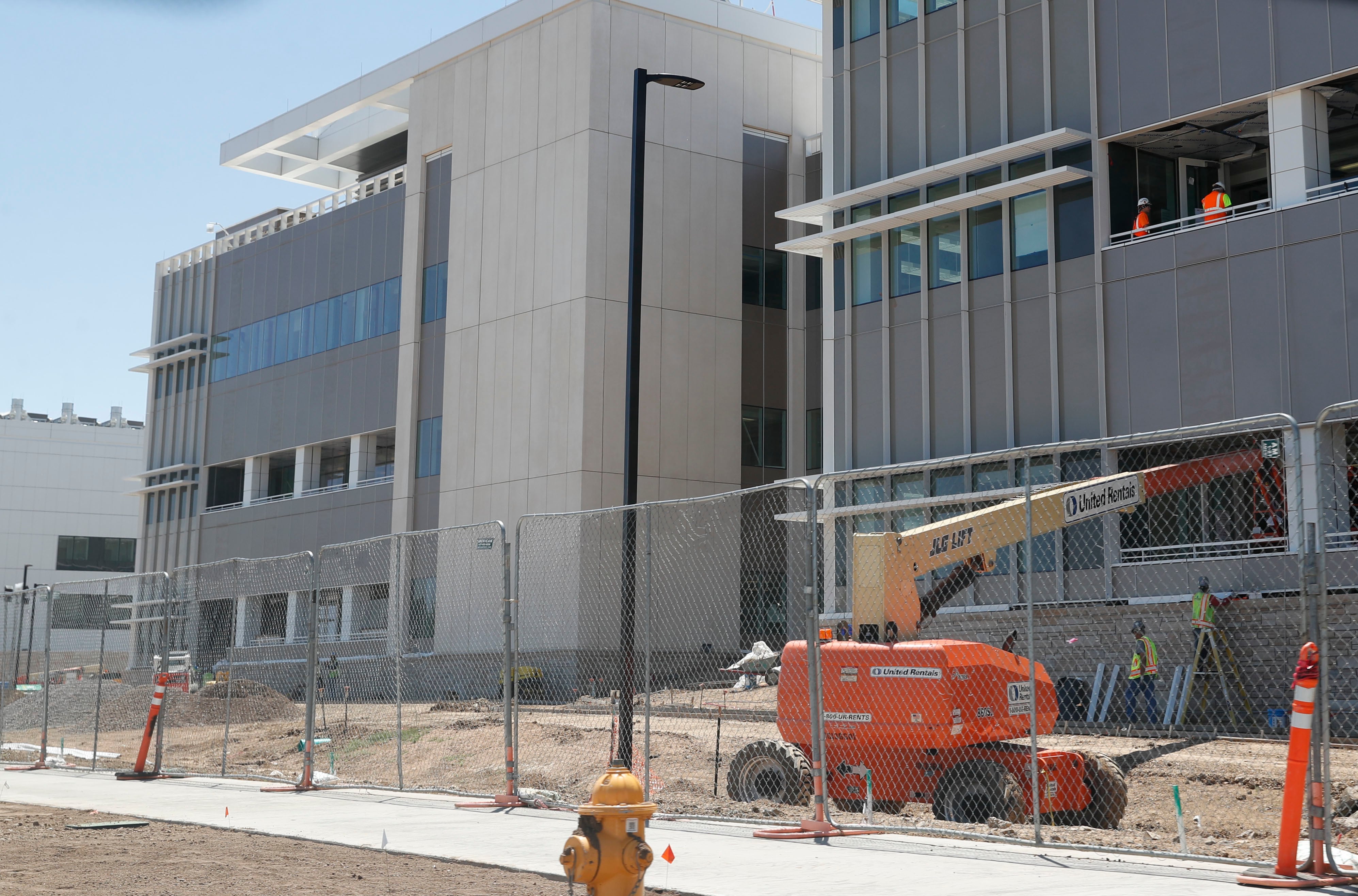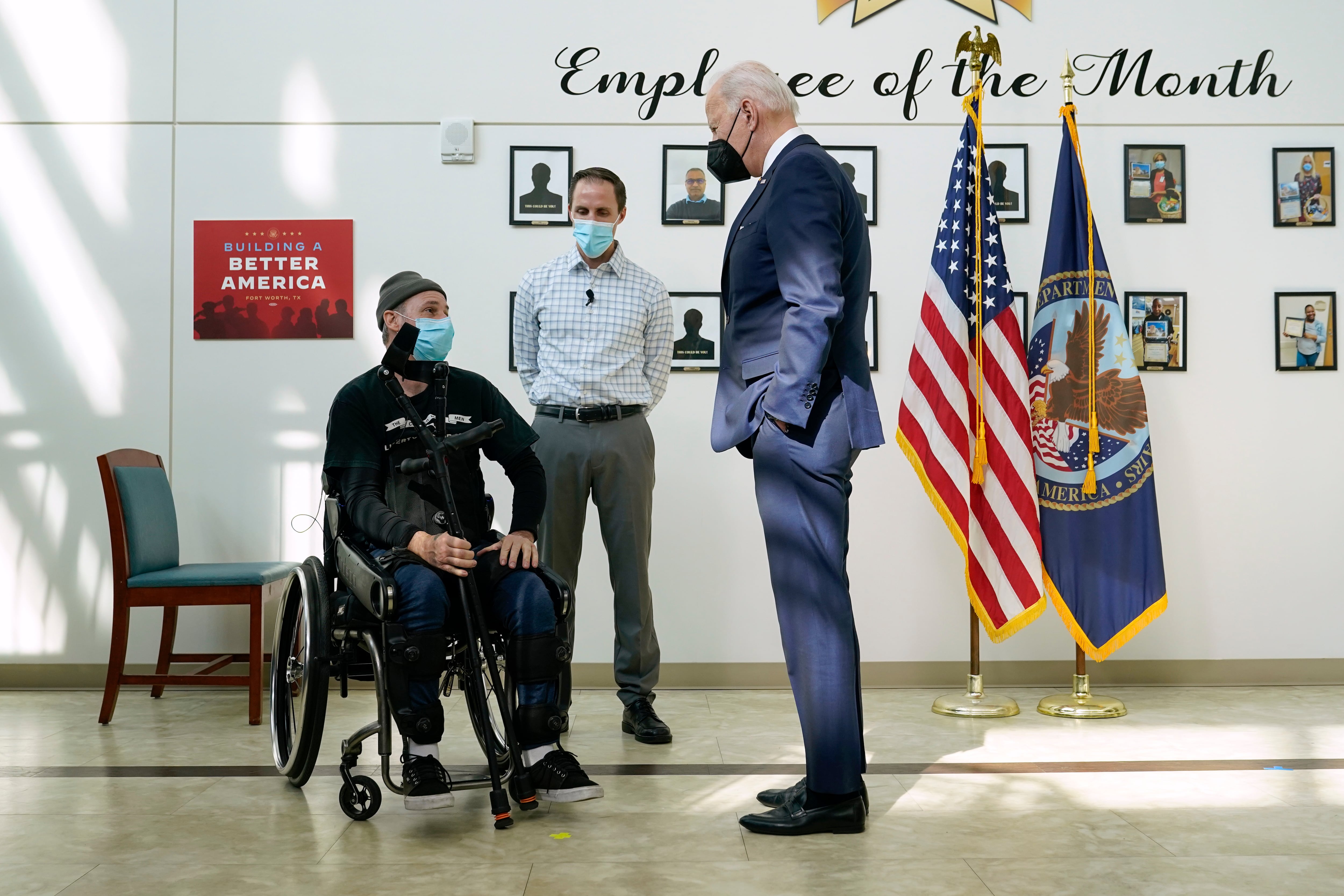Veterans Affairs leaders will recommend closing three major medical centers and more than 170 other outpatient health facilities in coming years as part of an ongoing review of the department’s footprint across America, according to documents obtained by Military Times.
But VA officials will also push for construction of 255 new health care and community living facilities as part of the plan, a trade-off that they say will put almost 200,000 more veterans within a 30-minute drive of basic medical care and 370,000 more veterans within an hour’s drive of specialty care.
VA Secretary Denis McDonough is expected to detail the plan on March 10 during an event with the RAND Epstein Family Veterans Policy Research Institute.
In planning documents, VA officials cautioned that the closures and new facility construction are “several years away” at the earliest, if they are implemented at all.
RELATED

The work is part of the Asset and Infrastructure Review Commission approved by Congress in 2018 but just getting underway this year. The process is similar to the base closing commissions stood up in the 1980s and 1990s to reassess the Defense Department’s holdings in an effort to find waste and cost-savings.
The VA recommendations will be reviewed and approved — or amended — by an independent panel of experts from the veterans community and health care industry over the next year.
However, VA officials have spent months researching veterans medical care access and needs in local markets across the country, and their recommendations will carry significant weight with the still-to-be-named commission.
In planning documents outlining the work to veterans advocates, VA officials pledged that “in the short run [the plans] will have no impact on VA employees or services.”
But if the commission agrees with the proposals, it could mean shifting staff across communities or even state lines to better staff the new medical facilities infrastructure envisioned by officials.
In recent weeks, McDonough has proposed major investments in the VA workforce in order to recruit and retain top talent, to include better pay and benefits.
Officials have also briefed medical staff across the country on the changes, although the information released so far has been focused on local changes and not comprehensive for the entire department.
VA currently maintains 171 major VA Medical Centers across America. The new plan calls for closing three of those, although officials have not yet specified which three.
In recent weeks, lawmakers in Ohio and South Dakota have indicated their VA hospitals may be on the short list for closure, and have protested that the moves could hurt their local communities.
In place of those shuttered locations, dozens of other to-be-built inpatient facilities would assume their workload. The department wants to establish 27 new stand-alone community living centers (VA has two now), 48 new inpatient facilities partnering with private-sector offices (VA has seven now) and 12 new residential rehabilitation treatment programs (VA has 10 now).
The VA proposal also calls for closing 86 Community-Based Outpatient Clinics (about 16 percent of the department’s total today) and 88 other outpatient offices. They would be replaced by 140 new multi-specialty CBOCs, which officials say will provide a wider range of services to veterans.
The moves would represent a massive investment in the future of VA medical care, particularly if lawmakers go along with the new construction plans.
Republicans lawmakers in recent years have pushed for more private-sector care options for veterans in need of medical services, arguing that having VA duplicate that work is inefficient and often inconvenient for veterans.
But the VA recommendations argue the changes are needed to “maintain appropriate internal capacity and invest in modern infrastructure to meet the demand” of veteran patients.
RELATED

On the other side, federal worker unions said they have concerns that the looming closings will hurt both VA staff and patients.
“Closing VA facilities will force veterans to rely on uncoordinated, private, for-profit care, where they will suffer from long wait times and be without the unique expertise and integrated services that only the VA provides,” said American Federation of Government Employees National President Everett Kelley in a statement.
“Every time the VA has tried to privatize veterans’ care, the private sector has charged veterans more money out of pocket for worse outcomes. The VA’s newest attempt at wholesale privatization will have the same effect. Veterans will suffer as scammers and grifters eagerly take advantage of the VA’s open checkbook”
The recommendations are expected to be formally submitted as part of the Federal Register on March 14.
Leo covers Congress, Veterans Affairs and the White House for Military Times. He has covered Washington, D.C. since 2004, focusing on military personnel and veterans policies. His work has earned numerous honors, including a 2009 Polk award, a 2010 National Headliner Award, the IAVA Leadership in Journalism award and the VFW News Media award.




